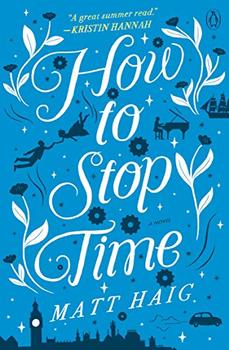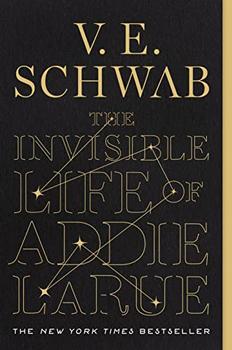Summary | Excerpt | Reviews | Beyond the book | Read-Alikes | Genres & Themes | Author Bio

A love story across the ages - and for the ages - about a man lost in time, the woman who could save him, and the lifetimes it can take to learn how to live.
"The first rule is that you don't fall in love,' he said… 'There are other rules too, but that is the main one. No falling in love. No staying in love. No daydreaming of love. If you stick to this you will just about be okay.'"
Tom Hazard has a dangerous secret. He may look like an ordinary 41-year-old, but owing to a rare condition, he's been alive for centuries. Tom has lived history - performing with Shakespeare, exploring the high seas with Captain Cook, and sharing cocktails with Fitzgerald. Now, he just wants an ordinary life.
So Tom moves back his to London, his old home, to become a high school history teacher - the perfect job for someone who has witnessed the city's history first hand. Better yet, a captivating French teacher at his school seems fascinated by him. But the Albatross Society, the secretive group which protects people like Tom, has one rule: Never fall in love. As painful memories of his past and the erratic behavior of the Society's watchful leader threaten to derail his new life and romance, the one thing he can't have just happens to be the one thing that might save him. Tom will have to decide once and for all whether to remain stuck in the past, or finally begin living in the present.
How to Stop Time is a bighearted, wildly original novel about losing and finding yourself, the inevitability of change, and how with enough time to learn, we just might find happiness.
The love story aspect of the novel is not its greatest strength. For history lovers, however, there is a lot more to admire. In flashbacks to Tom's many former lives, Haig takes readers to Elizabethan London, where Tom evocatively captures his surroundings, "The competing shouts and cries of traders. The drunken laughter of the ale-sozzled. The grunts and moos and hisses of assorted animals."..continued
Full Review
(697 words)
This review is available to non-members for a limited time. For full access,
become a member today.
(Reviewed by Lisa Butts).
In 1599, the early days of Tom Hazard's long life, his quasi-immortality results in a charge of witchcraft leveled against both himself and his mother, and he is forced to witness the harrowing ordeal of her trial. The belief in witchcraft was common in England at this time, upheld both by Queen Elizabeth I (1558-1603) and her successor King James 1 (1603-1625). This belief is evident in a number of plays from the period, most memorably in Shakespeare's Macbeth, in which the prophecies of the three witches drive the action. James I had a history of persecuting those believed to be witches, and even wrote a book about them called Daemonologie in 1597 when he was King of Scotland, though he grew to question these beliefs in his later years.
...
This "beyond the book" feature is available to non-members for a limited time. Join today for full access.

If you liked How to Stop Time, try these:

by Leigh Bardugo
Published 2025
From the #1 New York Times bestselling author Leigh Bardugo comes a spellbinding novel set in the Spanish Golden Age.

The Invisible Life of Addie LaRue
by Victoria E. Schwab
Published 2023
Winner of the 2020 BookBrowse Fiction Award
In the vein of The Time Traveler's Wife and Life After Life, The Invisible Life of Addie LaRue is New York Times bestselling author V. E. Schwab's genre-defying tour de force.
Knowledge is of two kinds. We know a subject ourselves, or we know where we can find information on it.
Click Here to find out who said this, as well as discovering other famous literary quotes!